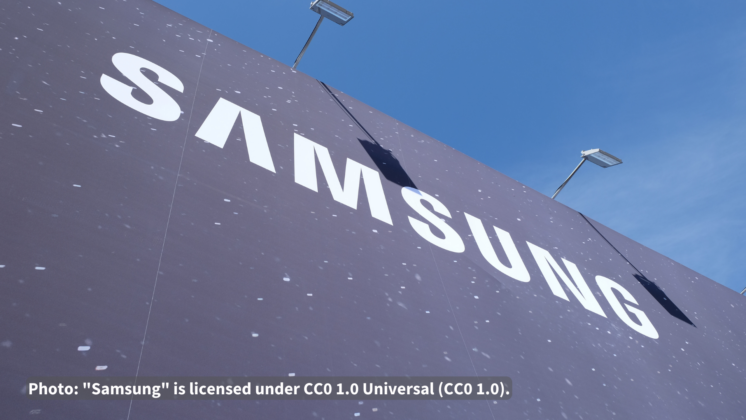The Finnish company Nokia used to be the charming ‘girl next door’ among the telecoms. But the takeover by Microsoft has changed it all. It’s the Vietnamese and Indian workers assembling the mobile phones who are now the dupes.
The Finnish company Nokia used to be the charming ‘girl next door’ among the telecoms. But the takeover by Microsoft has changed it all. It’s the Vietnamese and Indian workers assembling the mobile phones who are now the dupes.
This article has been published in Dutch on the Oneworld website.
It once stood as the mobile brand: Nokia. A charming company named after a small town in southern Finland. Old-school, solid phones that were only meant for placing calls and sending text messages; you could drop them without breaking them, and they also carried the addictive game Snake. Nokia had a friendlier feel to it than bigger flashier brands. A bit of a ‘girl next door’ among the mobile telecoms, and with a mission to ‘connect people,’ a slogan that leads the responsible consumer to think: ‘well, that should also sit well with sustainability and human rights.’ But that dapper Finnish ‘home girl’ has now been swallowed up by big bully Microsoft. The American computer-giant took over the mobile division of the ailing Nokia for € 5.44bn. And through nothing less than a hostile takeover. Evil! Disappointing sales figures, redundancies, business closures – poor Nokia just couldn’t win.
Restart
But is this really the whole picture? Can we blame it all on Microsoft’s cut-throat calculations? It’s not that simple. The deal is actually a win-win solution for both Microsoft and Nokia. Rather than being a victim, Nokia has followed a well thought-out strategy. Indeed, news recently came out that Nokia is making a fresh start (Dutch only) with mobile phones; the company has posted a large number of vacancies for designers, technicians, and researchers with mobile-phone expertise. It’s rather the factory workers who assemble the phones in low-wage countries who are the dupes; they’re the ones who have to pick up the bill.
Tax evasion
Take India, for instance; it’s all going haywire there. Nokia has been embroiled in a tax conflict with the Indian authorities for months now. They had set up their Nokia Telecom park in Sriperumbudur in Tamil Nadu (southern India) in 2005. The compound houses their assembly factory as well as many of their suppliers, such as Foxconn, Salcomp, Light On Mobile (formerly Perlos), Laird, and Wintek. Two other providers, Flextronics and Build Your Dreams, are located just outside the area and employ still more people. This allowed Nokia to benefit from the tax breaks and subsidies offered through regulations for Special Economic Zones. The factory in Sriperumbudur has produced a grand total of 500 million phones since 2005. At the height of their production peak the Telecom Park was employing over 25,000 workers.
But things are now looking very differently: Nokia has been summoned to court to account for tax evasions in the hundreds of millions in euros. Out of 12,000 employers, 5,700 are being sacked. Local and international NGOs and unions have criticised the ‘voluntary departure’ package that compensates workers insufficiently for their resignations. Jobs are also being scrapped in huge numbers at Nokia’s suppliers. In fact, the whole of India’s electronics sector is taking a huge blow in terms of employment opportunities. Microsoft has taken over of the Nokia factory in Sriperumbudur with the deliberate plan to close it within one year.
Extremely low wages
Over to Vietnam. In Hanoi, Nokia has erected a brand new factory from scratch, which started operations in 2013. Conditions there are picture-perfect from an employer’s point of view: a large and eager labour market ready to work for very low wages. A factory worker in Hanoi earns US$ 145 per month; compare that with US$ 449 in China (Shanghai) and US$324 in Chennai, India. There are hardly any unions in Vietnam, so Nokia will not be bothered by the type of criticism from unions such as those that do exist in India. Nor by dissatisfied employees, such as workers in China who are increasingly vocal and demonstrating. As it now appears, a large portion of Nokia’s production in India will be moved to Vietnam.
This calls into question to what extent corporations consider the interests of their employees in their decision-making where investment and disinvestment is concerned. Nokia is presenting the inauguration of their factory in Hanoi as a golden economic opportunity for the country. Hardly a consolation for their employees in India. The employment rates in Vietnam will surely benefit, but it’s the workers who will pay a high price in the form of heavy work, extremely low wages and very limited freedom of association.
The sustainability comparison tool for consumers, Rank a Brand, is giving Nokia a score of 13 out of 37. Microsoft, in turn, only gets 4 points because the company provides ‘very limited information about their policy for sustainability. More policy, transparency and action are therefore needed.' Nokia could score higher by proving that the working conditions in their production chain are good.











